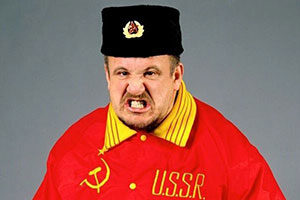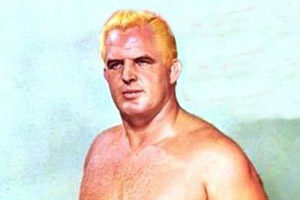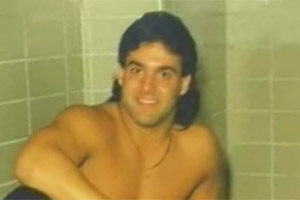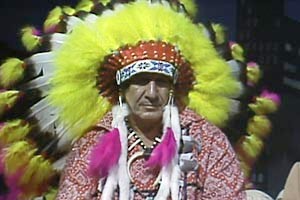Ole Anderson Death – Undisclosed Causes
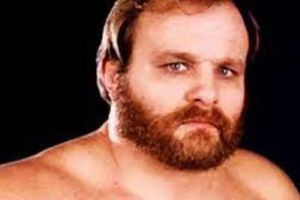
Ole Anderson was a gifted wrestler and booker who never hesitated to speak his mind.
1942-2024 (Age 81)
Ole Anderson was known for his toughness and outspokenness. Both qualities served him well as a wrestler and booker. Speaking his mind could be problematic, but he never seemed to care.
Anderson became a member of The Minnesota Wrecking Crew early in his career. He later became a founding member of The Four Horsemen, one of wrestling’s greatest factions.
Starting Off in the AWA
Alan Rogowski was born on September 22, 1942. The Minneapolis, Minnesota native broke into wrestling after American Wrestling Association (AWA) promoter Verne Gagne told him he should give it a try. Rogowski looked like a pro wrestler and had credentials as an amateur athlete.
Rogowski began wrestling in the AWA but eventually left for Stampede Wrestling in Calgary, Alberta. Life in the cold wasn’t bad for someone who grew up in Minnesota but the long miles traveling in a cramped car quickly turned him off to working there. Fortunately, an old friend from college invited him to wrestle in the Carolinas.
The friend was Larry Heiniemi, who was now working as Lars Anderson in Jim Crockett Promotions alongside Gene Anderson. Rogowski jumped at the chance and became a third Anderson brother. The group, collectively known as The Minnesota Wrecking Crew rode roughshod on the territory’s babyfaces.
Enter Ole Anderson
Alan Rogowski became Ole Anderson, a name he reportedly thought was a rib but that lasted the rest of his wrestling career.
Lars Anderson left the territory but Ole and Gene stayed together for years. The duo were hated by the fans but this hatred led to big box office receipts for Crockett. The Andersons would hold several tag team titles and feud with babyface and heel teams.
The Andersons’ battles with babyfaces were wild as they clashed with teams including Johnny Weaver and George Becker, Jerry Brisco and Thunderbolt Patterson, and Paul Jones and Bob Bruggers.
As exciting as these battles were, fans looked forward to watching Ole and Gene battle other heel teams. These “Battles of the Bullies” were usually pier-six brawls. One of Ole and Gene’s greatest opponents was the heel team of Greg Valentine and Ric Flair.
Ironically, Flair was brought in as the Andersons’ storyline cousin. He initially teamed with them but broke off on his own. The Andersons and Flair could be thick as thieves or mortal enemies depending on storyline needs.
Ole would hold Jim Crockett Promotions’ version of the NWA World Tag Team Championship seven times with his kayfabe brother. The Minnesota Wrecking Crew also held a plethora of tag team titles in nearby Georgia Championship Wrestling.
Booking Georgia Championship Wrestling
Over time, Ole began booking in Georgia Championship Wrestling and acquired partial ownership in the promotion. The territory benefited from airing on Ted Turner’s WTBS Superstation, a cable network which reached homes across the United States. At the time, most wrestling promotions were limited to running shows on local UHF stations in a small area.
Anderson proved a good booker but he also clashed with talent if they didn’t meet his expectations. He gained a reputation as a tough boss and he wouldn’t hesitate to fire wrestlers.
Ole’s well-documented use of racial slurs caused some to accuse him of being a racist. There have been different takes from his contemporaries on whether he was racially biased.
At the same time, Ole booked some fantastic storylines, capitalizing on talents such as Dusty Rhodes, Tommy Rich, and Buzz Sawyer. He later created The Road Warriors, Animal and Hawk, booking them as monster heels who quickly became the top tag team in the country, and eventually the world.
Carrying on the Anderson Tradition
Ole bounced between Jim Crockett Promotions and Georgia Championship Wrestling, finding success in both promotions. When Gene was forced to retire due to an injury, Ole continued wrestling and he made sure the Anderson tradition carried on.
Over time, Ole was paired with another kayfabe relative; Arn Anderson. The two captured the National Tag Team Championship in Georgia Championship Wrestling and became a formidable team.
However, this was only the beginning. Ole and Arn eventually teamed with Ric Flair and Tully Blanchard to form the Four Horsemen. The faction terrorized Jim Crockett Promotions, much like the original Minnesota Wrecking Crew had.
The Four Horsemen would go through many incarnations. Although Ole left the group in 1987, he rejoined them.
A Clash of Egos?
Ole Anderson returned to booking but his second go at things was far less successful than his heyday in Georgia Championship Wrestling. He butted heads with WCW’s Eric Bischoff but Bischoff valued Ole’s passion for wrestling and sent him to WCW’s training facility, The Power Plant.
In his first memoir, Controversy Creates Cash, Bischoff recalls:
So I sent him off to head the Power Plant, which was our training facility. I wasn’t exiling him. Ole was a great teacher and well suited to the job. But he didn’t see it that way.
The founding member of The Four Horsemen claims he was told not to report to work anymore after he confronted Bischoff. Ole recalls Eric complaining again about something. In his memoir, Inside Out, Anderson claims:
I was fed up with his nonsense. Since he was supposed to be a big black belt boy, I decided to push him to the edge. I said, “Eric, I’ve been told by several people that you always wondered if you could kick my ass. I also know you sent other guys out to try to do that.” I was speculating at that point about his black belt because I didn’t know for sure, but he didn’t deny it. “But they didn’t get the job done,” I continued. “Maybe this is the time when you and I find out who can beat who.”
According to Anderson:
Eric went into his vaudeville song and dance. “What do you mean. How can you believe that, Ole? If it wasn’t for me, you wouldn’t even have a job. I’m the one who spoke up for you when Bill Shaw wanted to fire you. I tried to help you with your kid.” The whole time he was talking, he was slowly backing up. At first, I was facing him with my back to the door, but now he was sidling around me, trying to get to the door. I continued to provoke him, but he wouldn’t go for it. He wasn’t going to do anything. He made it out the door.
Bischoff would claim in his memoir that Ole left WCW after Blackjack Mulligan knocked him out in front of people at the Power Plant. The man nicknamed “ATM Eric” for his big money deals with wrestlers claims Mulligan overheard Ole badmouthing Eric so he cold cocked him.
Wrestling’s Grumpy Old Man
Whatever the particulars of Anderson’s WCW exit, he was done with pro wrestling. Unlike many wrestlers, Ole had always been wise with his money and he didn’t need to stay in the business.
Anderson had strong opinions on the current wrestling product. Like many wrestlers from his generation, he was critical of how things were booked. However, Anderson took criticism to a higher level than many of his peers. Ole’s comments in interviews (including shoot interviews) usually raised eyebrows and ruffled feathers.
Around 2008, news broke that Ole Anderson had been diagnosed with multiple sclerosis. The disease limited his mobility but it didn’t stop him from voicing his take on wrestling.
In 2012, the WWE announced it was inducting The Four Horsemen into the WWE Hall of Fame. The announcement listed Ric Flair, Arn Anderson, Tully Blanchard, Barry Windham, and JJ Dillon as inductees. Ole, a founding member was not included.
During an interview with journalist Mike Mooneyham, Anderson commented:
“Vince McMahon hates my guts, and I don’t like him. So that’s all there is to it,” Anderson said. “To be a part of that, anyone with a brain knows who the first Four Horsemen were. It was me and Arn and Ric and Tully Blanchard, and J.J. Dillon was the manager. So if they don’t know that, they don’t know anything about wrestling anyway. So what’s the difference?”
Needless to say, Anderson’s outspoken nature did come back to bite him.
The Death of Ole Anderson
Ole Anderson died on February 26, 2024. His cause of death has not been disclosed. The Carter Funeral Home obituary for him notes:
Mr. Rogowski is survived by his significant other of twenty-two years, Marsha Cain; children, Bryant Rogowski, Christian Rogowski, Fortune Evans, Aaron Rogowski, Ethan Rogowski, Galen Rogowski, and Dana Armstrong; along with a host of grandchildren and extended family also survives.
What are your favorite memories of Ole Anderson? Let us know in the comments below.
Other pro wrestlers who died in 2024 include Ice Train, Chris Markoff, Paul “Butcher” Vachon, and Virgil.

